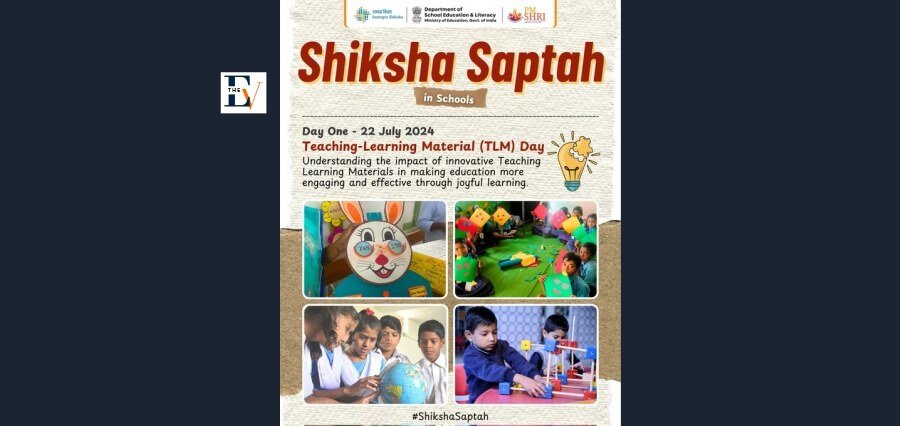Parental Involvement
In the dynamic landscape of Indian education, one indispensable element takes centre stage: Parental Involvement. Beyond the classroom and textbooks, the active participation of parents in their children’s educational journey emerges as a foundational pillar for academic achievement and holistic development.
Let’s gain insights into how parental involvement positively impacts children’s love for learning!
The Essence of Parental Involvement
At its core, parental involvement refers to the engagement of parents in the educational and developmental aspects of their children. It goes beyond merely attending parent-teacher meetings; it encompasses a proactive and consistent partnership between parents and educators to create a conducive learning environment.
Bridging the Gap: Home and School Collaboration
In the bustling landscape of Indian education, where the demands on students are ever-increasing, the collaboration between home and school becomes paramount. Parents serve as the bridge between the two, ensuring a seamless exchange of information that enhances the overall educational experience.
When parents actively participate in school activities, attend meetings, and maintain regular communication with teachers, a collaborative ecosystem is nurtured. This collaboration enables educators to gain insights into a child’s home environment, facilitating a more tailored and holistic approach to their education.
Nurturing a Love for Learning
Parental involvement plays a pivotal role in cultivating a love for learning from a young age. Simple activities, such as reading together, discussing school projects, or exploring educational games, create a positive association with learning. When children witness their parents valuing education, they are more likely to develop a keen interest in their studies.
Academic Support at Home
In the Indian context, where academic competition can be intense, parents become not just cheerleaders but crucial academic supporters. Providing a quiet space for study, assisting with homework, and actively engaging in discussions about what is being learned in school can significantly boost a child’s academic performance.
By being aware of their child’s strengths and weaknesses, parents can supplement school learning with additional resources or seek timely assistance when needed. This collaborative effort confirms that the child receives comprehensive support, laying a strong foundation for future success.
Instilling Values and Discipline
Education is not solely about textbooks and examinations; it is also about character-building and instilling values. Parental involvement plays a pivotal role in this aspect of a child’s development. Through regular communication and active participation in the child’s life, parents can impart essential values such as discipline, responsibility, and respect for others.
When there is consistency between the values emphasised at home and those promoted in the school, it creates a harmonious environment for the child’s overall growth. This alignment fosters a sense of belonging and encourages positive behaviour both at home and in the school community.
Overcoming Challenges: The Importance of Communication
While the concept of parental involvement is universally acknowledged, it is essential to address the challenges that may hinder effective collaboration. Communication is a key factor in overcoming these challenges. Schools can implement clear communication channels, including regular newsletters, digital platforms, and dedicated parent-teacher interaction sessions.
On the other hand, parents can actively seek information, stay informed about their child’s academic progress, and express any concerns or suggestions. Open and transparent communication between parents and educators is the linchpin for creating a supportive educational environment.
Parental Involvement Beyond School Years
The impact of parental involvement extends beyond the early school years into higher education and career choices. When parents actively engage in discussions about future aspirations, guide their children in making informed decisions, and provide emotional support during challenging academic phases, they contribute significantly to their child’s long-term success.
Embracing Diversity: Tailoring Involvement to Individual Needs
In the vast and diverse Indian education landscape, it’s crucial to recognise that parental involvement is not a one-size-fits-all concept. It should be tailored to the individual needs of the child, considering factors such as learning styles, interests, and developmental stages.
For some children, parental involvement may involve active participation in extracurricular activities, while for others, it may revolve around providing emotional support during exam periods. Embracing this diversity ensures that each child receives the specific support they need to thrive academically and personally.
Emphasising the Impact of Parental Involvement
As we reflect on the integral role of parental involvement in Indian education, it becomes a collective responsibility. Educators, parents, and policymakers must work in tandem to create an environment that promotes and facilitates active parental participation.
In a country where educational success is often seen as a gateway to a brighter future, the influence of parents in shaping this success cannot be overstated. By emphasising and fostering parental involvement, we lay the groundwork for a generation of empowered, confident, and successful individuals.
Promoting Extracurricular Engagement
Beyond academics, parental involvement in extracurricular activities fosters well-rounded development. Whether it’s cheering at a sports event, attending music recitals, or supporting artistic endeavours, parents contribute to the holistic growth of their children. Such engagement nurtures creativity, teamwork, and a sense of accomplishment.
Encouraging Lifelong Learning Habits
Parental involvement is not confined to a specific academic year; it extends to instilling lifelong learning habits. When parents model curiosity for knowledge, embrace learning opportunities themselves, and encourage intellectual exploration, they set a lasting example. This attitude paves the way for a culture of continuous learning within the family.





